Stella Young Quotes & Sayings (Page 7)
Stella Young quotes and sayings page 7 (comedian). Here's quote # 61 through 70 out of the 87 we have.
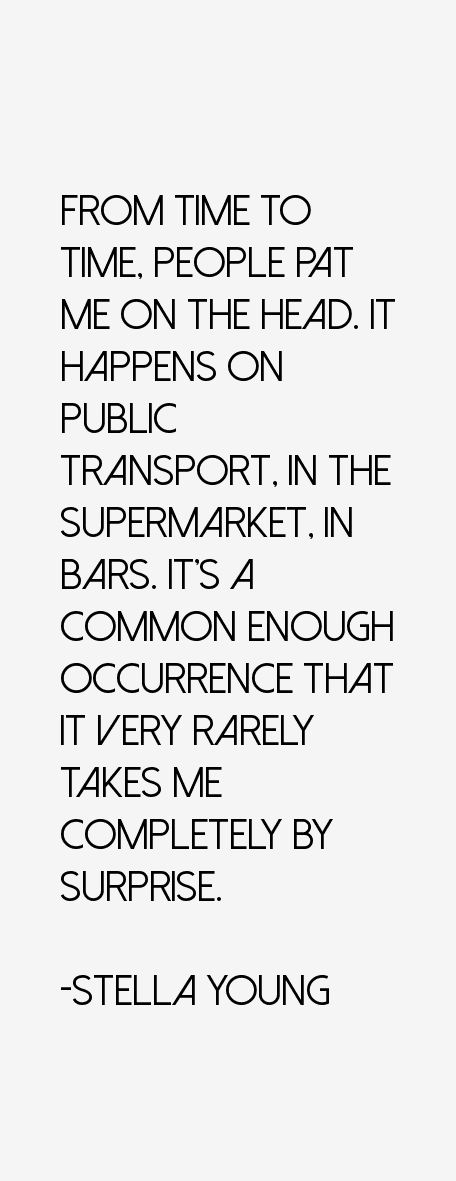
“From time to time, people pat me on the head. It happens on public transport, in the supermarket, in bars. It's a common enough occurrence that it very rarely takes me completely by surprise.”
“I am repeatedly asked in interviews exactly 'what's wrong' with me, and I always give them the same answer; I don't identify the name of my condition in an interview unless it's relevant to the context of the story.”
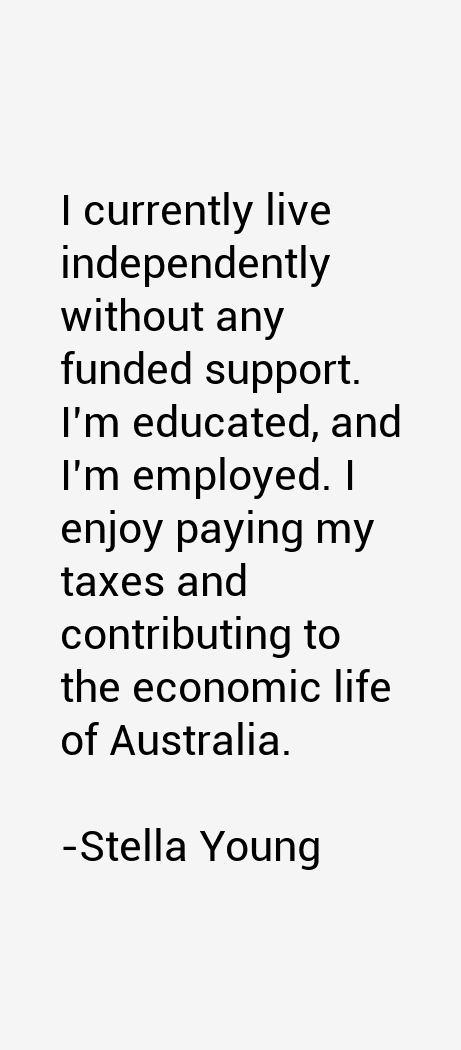
“I currently live independently without any funded support. I'm educated, and I'm employed. I enjoy paying my taxes and contributing to the economic life of Australia.”
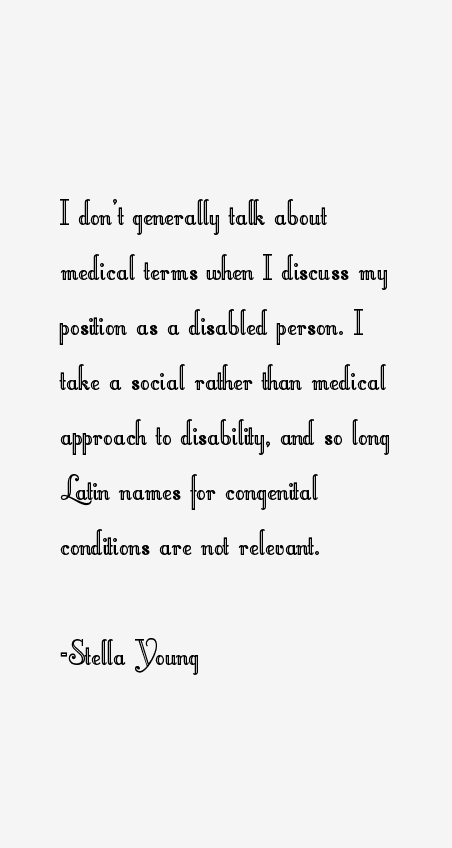
“I don't generally talk about medical terms when I discuss my position as a disabled person. I take a social rather than medical approach to disability, and so long Latin names for congenital conditions are not relevant.”
“I grew up in a very small country town in Victoria. I had a very normal, low-key kind of upbringing. I went to school, I hung out with my friends, I fought with my younger sisters. It was all very normal.”
“I have a condition called Osteogenesis Imperfecta (OI), which has affected my growth and bone strength. In short, people with the kind of OI I have generally experience hundreds of fractures in their lifetime and use wheelchairs for mobility.”
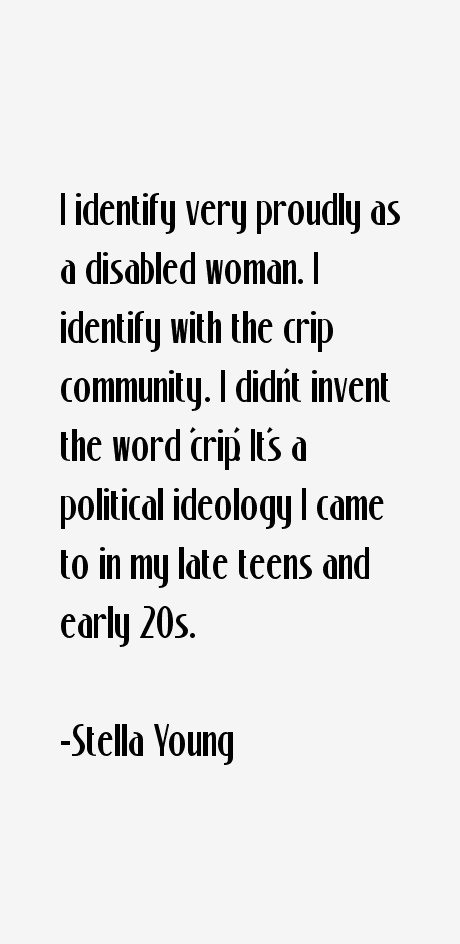
“I identify very proudly as a disabled woman. I identify with the crip community. I didn't invent the word 'crip'. It's a political ideology I came to in my late teens and early 20s.”
“I let go of the notion of wanting someone to ignore the way I look in order to find me attractive, because really, what kind of relationship would that be? One where someone's only attracted to you because they're ignoring a fundamental part of you? No thanks.”
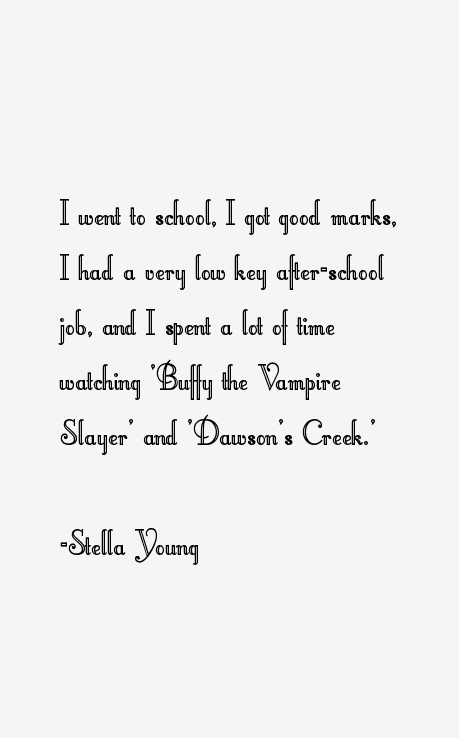
“I went to school, I got good marks, I had a very low key after-school job, and I spent a lot of time watching 'Buffy the Vampire Slayer' and 'Dawson's Creek.'”
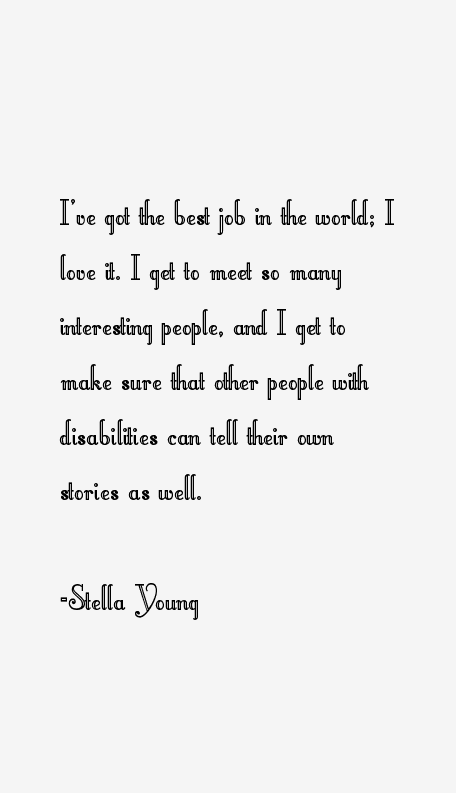
“I've got the best job in the world; I love it. I get to meet so many interesting people, and I get to make sure that other people with disabilities can tell their own stories as well.”
Stella Young Quotes Rating
No Ratings Yet
Leave A Comment
























